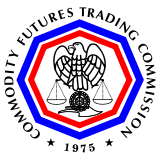
The Court’s Order requires Defendants to make restitution of over $300,000 to Li’s former employer and imposes a civil monetary penalty of over $900,000, representing three times the Defendants’ unlawful gains. The Court also enjoins Li from trading in the commodity futures markets for five years and prohibits Kering from allowing Li access to its trading accounts and from relying upon Li for trading advice and direction for the same period. The Court also permanently enjoins Li and Kering from further violations of the Commodity Exchange Act.
The Court’s Order stems from a CFTC Complaint filed on July 1, 2015, that charged Li and Kering with fraud, fictitious sales, and non-competitive transactions in connection with a series of transactions engineered by Li on the CME Group Inc.’s electronic trading platform that resulted in “money passes,” whereby Li moved money from her former employer’s trading account to Kering’s trading account.
In the Order, the Court finds that undisputed facts established that on six separate occasions between March 17 and May 6, 2015, Li intentionally engineered and engaged in commodity futures trades that were designed to give the appearance of taking place on the open market, while in reality were structured to avoid market risk, and resulted in a gain to Kering at the expense of Li’s former employer.
The Court finds that Li prearranged trades by trading her employer’s account opposite an account she controlled at Kering, while concentrating the trading in illiquid Eurodollar contracts outside of normal trading hours. Using this strategy, Li stole $300,462.50 from her employer and moved it to Kering. In the Order, the Court also finds that Li was not authorized by her employer to enter into any of the transactions, and that Kering is vicariously liable for Li’s trading. According to the Order, Li fled the United States after her employer discovered the trading activity and confronted Li about the trades.
In holding Li liable, the Court rejected Li’s argument that her employer’s alleged mistreatment of her provided any mitigating basis for her conduct, and found that Li’s belief that executing the illegal trades was the only way in which she would receive the compensation that she believed her employer owed her did not absolve her of the theft.
The Court found that:
Li’s actions have undermined public confidence in the commodities markets, and that the market harm she inflicted is even more insidious and damaging than the stolen funds themselves.
To view the official CFTC Order click here.
